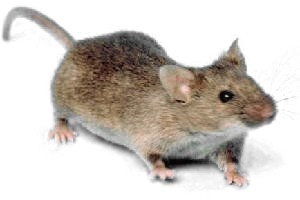Aggregated News

Mouse brains make nice homes for human brain organoids, researchers report today (April 16) in Nature Biotechnology.
Brain organoids, also known as mini-brains, are tiny clumps of brain cells grown from stem cells that researchers are using to investigate the neural underpinnings of autism and other neurological disorders. But the organoids typically grow in culture for only a few months before they die, limiting their usefulness as models of real brains. Transplanting the three-dimensional clumps of human brain tissue into the brains of mice allows the organoids to continue to develop, sprouting life-sustaining blood vessels as well as new neuronal connections, the new study reports. The work takes a step toward using brain organoids to study complexities of human brain development and disease that can’t be investigated with current techniques. Brain organoid transplantation may even one day offer a treatment option for traumatic brain injury or stroke.
“Although organoids are a great advance in human neuroscience, they are not perfect. They are missing blood vessels, immune cells and functional connections to other areas of the nervous system,” Jürgen Knoblich...



